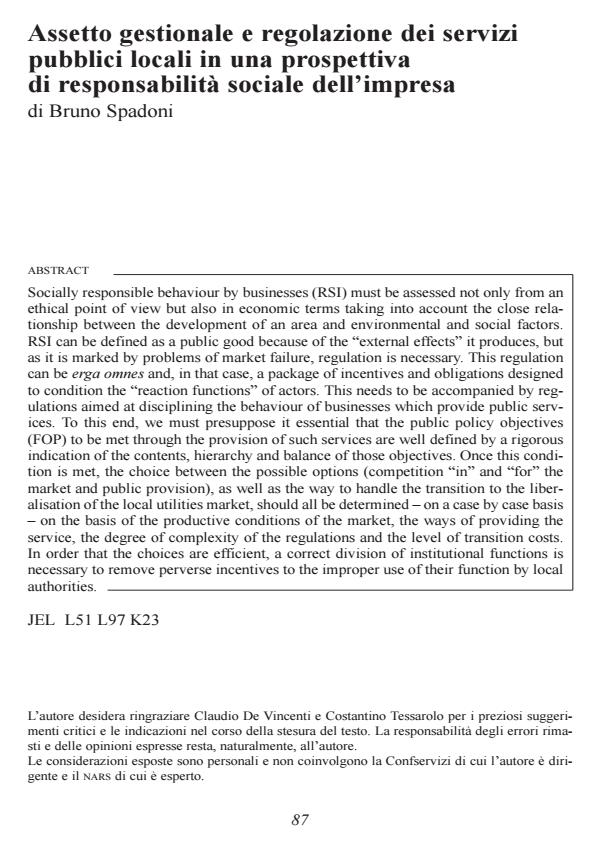Assetto gestionale e regolazione dei servizi pubblici locali in una prospettiva di responsabilità sociale dell'impresa
Journal title ECONOMIA PUBBLICA
Author/s Bruno Spadoni
Publishing Year 2004 Issue 2004/4 Language Italian
Pages 30 P. File size 160 KB
DOI
DOI is like a bar code for intellectual property: to have more infomation
click here
Below, you can see the article first page
If you want to buy this article in PDF format, you can do it, following the instructions to buy download credits

FrancoAngeli is member of Publishers International Linking Association, Inc (PILA), a not-for-profit association which run the CrossRef service enabling links to and from online scholarly content.
Socially responsible behaviour by businesses (RSI) must be assessed not only from an ethical point of view but also in economic terms taking into account the close relationship between the development of an area and environmental and social factors. RSI can be defined as a public good because of the external effects it produces, but as it is marked by problems of market failure, regulation is necessary. This regulation can be erga omnes and, in that case, a package of incentives and obligations designed to condition the reaction functions of actors. This needs to be accompanied by regulations aimed at disciplining the behaviour of businesses which provide public services. To this end, we must presuppose it essential that the public policy objectives (FOP) to be met through the provision of such services are well defined by a rigorous indication of the contents, hierarchy and balance of those objectives. Once this condition is met, the choice between the possible options (competition in and for the market and public provision), as well as the way to handle the transition to the liberalisation of the local utilities market, should all be determined on a case by case basis on the basis of the productive conditions of the market, the ways of providing the service, the degree of complexity of the regulations and the level of transition costs. In order that the choices are efficient, a correct division of institutional functions is necessary to remove perverse incentives to the improper use of their function by local authorities.
Bruno Spadoni, Assetto gestionale e regolazione dei servizi pubblici locali in una prospettiva di responsabilità sociale dell'impresa in "ECONOMIA PUBBLICA " 4/2004, pp , DOI: